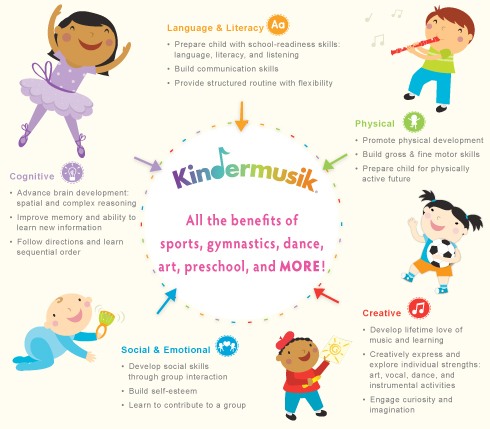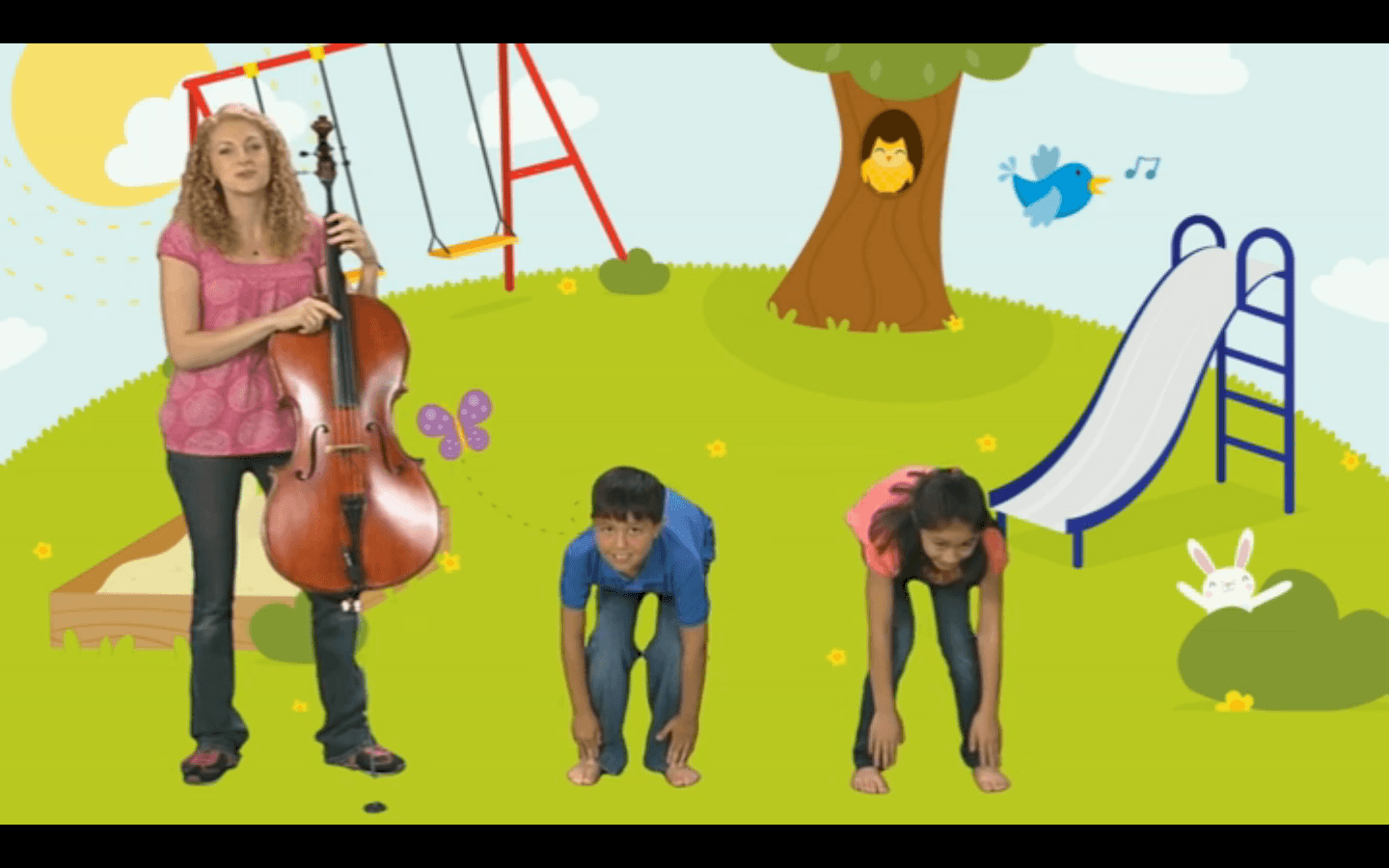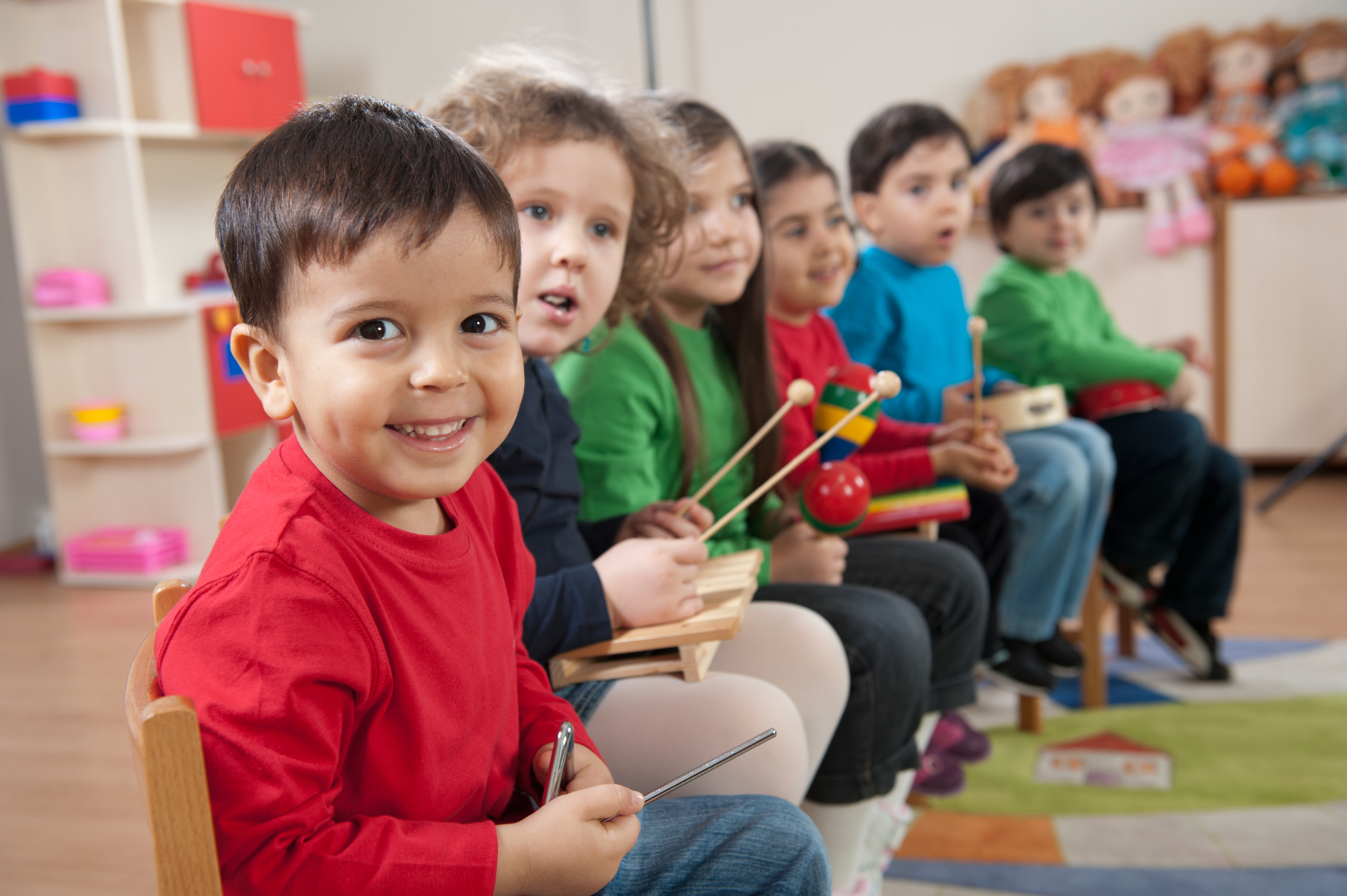 Looking to meet other moms and kids?
Looking to meet other moms and kids?
Kindermusik is like having you with your very own weekly playgroup with music and more!
Looking for ways to keep your child active?
Kindermusik develops your child’s motor skills, rhythm, and coordination. It’s a great way to provide physical activities for kids.
Looking to enhance your child’s creativity?Kindermusik is a place where your child’s imagination, curiosity, and love for learning is encouraged and expanded.
Looking for tips on childhood development?
Kindermusik supports you, in class and at home, with expert research and helpful ideas in the middle of all the fun.
Looking for memories to last a lifetime?
Kindermusik inspires cuddles, giggles, imagination, and learning in class and at home.
Looking for great group activities for kids?
Look no further than your local Kindermusik program. In fact, we invite you to try a class for FREE on us!
Kindermusik gives your child so much more than just music. Backed by more than 30 years of experience, Kindermusik is a carefully planned curriculum and a delightfully enjoyable experience that also offers the benefits of sports, gymnastics, dance, art, preschool… and then some!
– Special thanks to Kindermusik educators Theresa Case and Cathy Huser for their contributions to this post.






